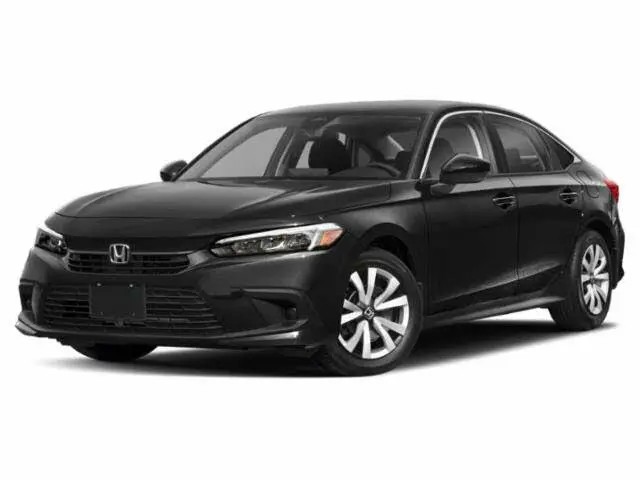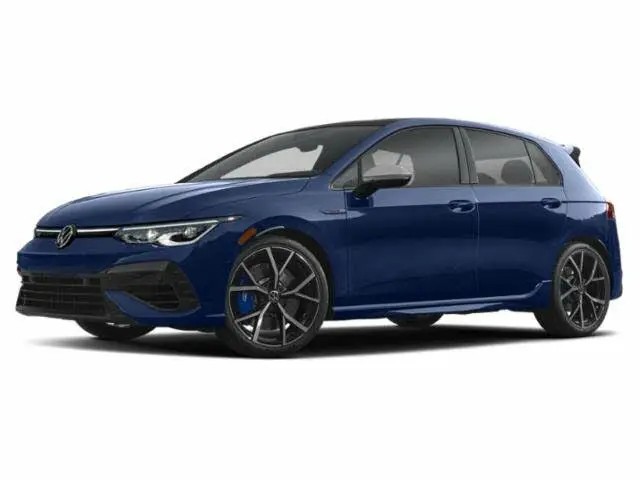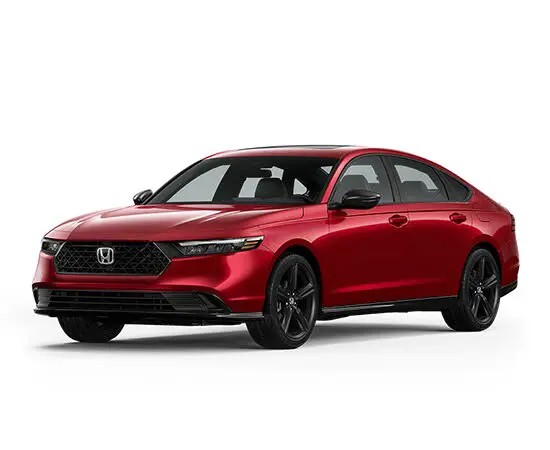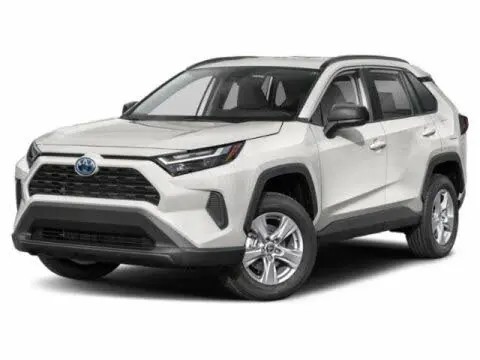In an era where fuel costs fluctuate and environmental consciousness is on the rise, choosing a car that gets good gas mileage is not just financially savvy—it’s a responsible decision. For car buyers in 2024 and beyond, fuel efficiency is a major factor influencing vehicle selection. This article delves into the world of fuel-efficient vehicles, highlighting the top cars that excel in gas mileage, and what makes them stand out in their respective classes. We’ll explore everything from compact cars to SUVs, ensuring you have a comprehensive guide to making an informed choice.
Understanding and Appreciating Fuel Efficiency
Fuel efficiency is essentially how far a vehicle can travel on a gallon of fuel. It’s typically measured in Miles Per Gallon (MPG) in the US, and Liters per 100 Kilometers (L/100km) in other parts of the world. A higher MPG or a lower L/100km figure indicates better fuel efficiency. Understanding this metric is crucial for anyone looking to reduce their carbon footprint and save money at the pump.
Why Gas Mileage Matters
Good gas mileage offers a multitude of benefits. Firstly, it translates directly to cost savings. Less fuel consumed means fewer trips to the gas station and more money in your pocket over the lifespan of the vehicle. Secondly, it’s environmentally friendly. Cars with better gas mileage emit less carbon dioxide, contributing to cleaner air and a healthier planet. In a world increasingly concerned about climate change, opting for a fuel-efficient car is a tangible step towards sustainability. Finally, in times of volatile fuel prices, owning a car with good gas mileage provides a buffer against price hikes and offers greater financial predictability.
How Fuel Efficiency is Determined
Fuel efficiency ratings aren’t just arbitrary numbers; they are derived from rigorous standardized tests. Organizations like the Environmental Protection Agency (EPA) in the United States conduct these tests under controlled conditions to simulate real-world driving scenarios. These tests typically include both city and highway driving cycles to provide a combined MPG figure that reflects average driving conditions. It’s important to note that these are standardized tests, and your actual MPG may vary based on your driving habits and conditions.
To truly maximize your car’s fuel efficiency, remember that the vehicle itself is only part of the equation. Your driving style plays a significant role. Aggressive acceleration, hard braking, and high speeds consume more fuel. Conversely, smooth acceleration, maintaining a steady speed, and anticipating traffic flow can significantly improve your MPG. Regular vehicle maintenance also contributes significantly to fuel economy. Properly inflated tires, regular engine tune-ups, and using the manufacturer-recommended motor oil can all optimize fuel efficiency. By being mindful of both your vehicle and your driving habits, you can unlock the full fuel-saving potential of your car.
 Everlance Mobile and Web Dashboard for tracking mileage and expenses
Everlance Mobile and Web Dashboard for tracking mileage and expenses
Key Factors Influencing Fuel Efficiency in Cars
Choosing a car with good gas mileage involves understanding the various factors that contribute to fuel consumption. Being aware of these elements empowers you to make a well-informed decision tailored to your needs.
Vehicle Size and Class
Generally, smaller and lighter vehicles are inherently more fuel-efficient than larger, heavier ones. This is because it takes less energy to move a lighter object. Compact cars and sedans typically offer better gas mileage compared to SUVs and trucks. However, advancements in automotive technology are blurring these lines, with some SUVs now offering surprisingly good fuel economy. Consider your passenger and cargo needs. If you primarily drive alone or with a small family, a compact car or a smaller SUV might be the sweet spot for fuel efficiency and practicality. For larger families or those needing significant cargo space, look for midsize SUVs or minivans with hybrid or other fuel-saving technologies.
Engine and Powertrain Technology
The engine is the heart of a car’s fuel efficiency. Engine type and the technology it employs are major determinants of MPG.
- Internal Combustion Engines (ICE): Advancements like turbocharging, direct fuel injection, and variable valve timing have significantly improved the efficiency of traditional gasoline engines. These technologies optimize combustion, extract more power from less fuel, and reduce waste.
- Hybrid Powertrains: Hybrid vehicles combine an ICE with an electric motor and battery. They offer excellent fuel economy by using electric power at lower speeds and during stop-and-go traffic, and the gasoline engine kicks in for higher speeds and increased power demand. Hybrids also feature regenerative braking, which recovers energy during deceleration to recharge the battery.
- Plug-in Hybrid Electric Vehicles (PHEVs): PHEVs take hybridization a step further with larger batteries and plug-in charging capability. They can travel a significant distance on electric power alone, further reducing gasoline consumption, especially for daily commutes.
- Battery Electric Vehicles (BEVs): BEVs, or all-electric cars, eliminate gasoline altogether. They run solely on electricity, offering the highest fuel efficiency (measured in MPGe – miles per gallon equivalent) and zero tailpipe emissions. While not technically “gas mileage,” BEVs represent the pinnacle of fuel efficiency and are increasingly becoming a mainstream option.
Driving Habits and External Conditions
Even the most fuel-efficient car can underperform if driven inefficiently. Driving habits have a substantial impact on gas mileage. Aggressive driving, characterized by rapid acceleration, hard braking, and speeding, dramatically reduces fuel economy. Conversely, smooth and steady driving maximizes MPG. Anticipating traffic, avoiding sudden stops, and maintaining a consistent speed are key fuel-saving techniques.
External conditions also play a role. Heavy traffic with frequent stop-and-go driving lowers fuel efficiency. Driving at high speeds on the highway increases wind resistance and fuel consumption. Hills and mountainous terrain demand more engine power, reducing MPG. Even weather conditions can affect fuel economy; extreme temperatures and strong winds can impact engine efficiency and aerodynamics.
Aerodynamics and Vehicle Weight
Aerodynamics, the way air flows around a vehicle, significantly influences fuel efficiency, especially at higher speeds. Sleek, streamlined designs reduce drag, allowing the car to move through the air more easily, requiring less engine power and fuel. Car manufacturers invest heavily in wind tunnel testing to optimize vehicle aerodynamics.
Vehicle weight is another crucial factor. Heavier cars require more energy to accelerate and maintain momentum, leading to higher fuel consumption. The automotive industry is constantly exploring lightweight materials like aluminum and high-strength steel to reduce vehicle weight without compromising safety. Lighter vehicles are inherently more fuel-efficient and also often offer better handling and braking.
 2024 Honda Civic Dashboard and Interior
2024 Honda Civic Dashboard and Interior
The Future Trajectory of Fuel Efficiency
The automotive industry is in constant motion, driven by ever-tightening emissions regulations and consumer demand for fuel-efficient vehicles. The future of Cars That Get Good Gas Mileage is bright, with ongoing advancements pushing the boundaries of efficiency.
Innovations in Fuel-Efficient Technologies
Automakers are relentlessly innovating to improve fuel efficiency across all vehicle types.
- Engine Technology: Expect further refinements in internal combustion engines, including even more efficient combustion processes, advanced turbocharging, and cylinder deactivation technologies that shut off cylinders when less power is needed.
- Hybrid and Electric Vehicle Advancements: Battery technology is rapidly evolving, leading to increased range, faster charging times, and lower costs for electric and hybrid vehicles. Next-generation hybrids will likely feature even more sophisticated energy management systems and higher electric ranges. Solid-state batteries, currently under development, promise to be a game-changer, offering higher energy density and improved safety.
- Lightweight Materials: The use of lightweight materials like carbon fiber, aluminum alloys, and advanced composites will become more widespread, further reducing vehicle weight and boosting fuel efficiency.
- Aerodynamic Enhancements: Active aerodynamics, such as adjustable spoilers and grille shutters that optimize airflow based on speed and driving conditions, will become more common, further minimizing drag.
The Role of Government and Consumer Behavior
Government regulations are a major catalyst for fuel efficiency improvements. Stricter emissions standards and fuel economy mandates worldwide are pushing automakers to innovate and produce more efficient vehicles. Tax incentives and rebates for fuel-efficient and electric vehicles are also encouraging consumer adoption.
Consumer awareness and behavior are equally important. As more drivers understand the financial and environmental benefits of fuel efficiency, demand for cars that get good gas mileage will continue to rise. Educating drivers about fuel-efficient driving techniques and the importance of regular maintenance can amplify the impact of fuel-efficient vehicle technologies.
Top Cars with Excellent Gas Mileage in 2024
Now, let’s explore some of the top contenders for best gas mileage in 2024, categorized by vehicle type. Please note that MPG figures can vary slightly depending on trim level and options. Always consult the EPA’s FuelEconomy.gov website for the most up-to-date and specific MPG ratings.
Compact Cars: Fuel Efficiency Leaders
Toyota Prius: The Toyota Prius remains the gold standard for fuel efficiency in the compact car segment. Its hybrid powertrain delivers exceptional MPG, making it ideal for city driving and long commutes. Known for reliability and fuel sipping capabilities, the Prius continues to be a top choice for eco-conscious drivers.
Honda Civic: The Honda Civic consistently ranks high for fuel economy in the non-hybrid compact class. Its efficient gasoline engines and aerodynamic design contribute to impressive MPG figures, making it a practical and fuel-efficient choice for daily driving. The Civic also offers a comfortable ride and sporty handling.
Hyundai Ioniq Hybrid: The Hyundai Ioniq Hybrid is another strong contender, offering comparable fuel economy to the Prius at a potentially more accessible price point. It boasts a spacious interior, a smooth ride, and a comprehensive suite of technology features, making it a well-rounded and fuel-efficient option.
 2024 Volkswagen Golf R Front View
2024 Volkswagen Golf R Front View
Volkswagen Golf: The Volkswagen Golf offers a blend of fuel efficiency and driving enjoyment. Its turbocharged engines provide a good balance of power and MPG, making it a fun-to-drive and relatively fuel-efficient compact car. The Golf is also known for its refined interior and European driving dynamics.
Mazda 3: The Mazda 3 stands out with its stylish design and engaging driving experience, without compromising on fuel efficiency. It offers competitive MPG figures in its class, making it an appealing choice for drivers who want a car that is both fun and frugal.
Midsize Cars: Efficient and Spacious
Toyota Camry Hybrid: The Toyota Camry Hybrid is a top pick in the midsize sedan category for fuel efficiency. It combines Toyota’s proven hybrid technology with the Camry’s spaciousness and comfort, delivering excellent MPG for a midsize car. The Camry Hybrid is a comfortable and fuel-conscious choice for families and commuters alike.
Kia K5 Hybrid: The Kia K5 Hybrid (formerly known as the Optima Hybrid) offers a stylish and feature-rich midsize sedan with impressive fuel economy. It provides a comfortable ride, modern technology, and competitive MPG, making it a compelling alternative in the hybrid midsize segment.
 2024 Honda Accord Hybrid Exterior View
2024 Honda Accord Hybrid Exterior View
Honda Accord Hybrid: The Honda Accord Hybrid is another excellent midsize hybrid sedan. It builds on the Accord’s reputation for reliability and spaciousness, adding a highly fuel-efficient hybrid powertrain. The Accord Hybrid is known for its refined driving experience and impressive MPG for its size class.
SUVs: Fuel Efficiency in a Larger Package
Ford Escape Hybrid: The Ford Escape Hybrid demonstrates that SUVs can also be fuel-efficient. It combines the practicality of an SUV with a fuel-sipping hybrid powertrain, delivering impressive MPG for its class. The Escape Hybrid offers a good balance of passenger and cargo space with fuel economy.
Toyota RAV4 Hybrid: The Toyota RAV4 Hybrid is a popular choice for those seeking a fuel-efficient SUV. It offers Toyota’s renowned hybrid system in a versatile and stylish SUV package. The RAV4 Hybrid boasts excellent MPG for an SUV, along with available all-wheel drive, making it a practical and fuel-conscious option.
 2024 Toyota RAV4 Hybrid Front Angle View
2024 Toyota RAV4 Hybrid Front Angle View
Lexus UX Hybrid: For those desiring a luxury SUV with excellent gas mileage, the Lexus UX Hybrid is a compelling choice. This compact luxury SUV offers a refined driving experience, premium features, and impressive hybrid fuel economy. The UX Hybrid combines luxury and efficiency in a stylish package.
Maximizing Fuel Efficiency with Your Car
Owning a car that gets good gas mileage is a great start, but there are further steps you can take to maximize your fuel savings and minimize your environmental impact.
Essential Maintenance for Optimal MPG
Regular maintenance is paramount for maintaining good gas mileage.
- Tire Inflation: Keep your tires properly inflated to the manufacturer’s recommended pressure. Underinflated tires increase rolling resistance and reduce fuel economy.
- Regular Oil Changes: Follow the manufacturer’s recommended oil change intervals and use the correct grade of motor oil. Fresh, clean oil reduces engine friction and improves efficiency.
- Air Filter Replacement: A clean air filter ensures proper airflow to the engine. A clogged air filter restricts airflow and can reduce fuel economy.
- Tune-ups: Regular engine tune-ups, including spark plug replacement and inspection of other engine components, ensure optimal engine performance and fuel efficiency.
Fuel-Efficient Driving Techniques
Adopting fuel-saving driving habits can significantly improve your MPG.
- Smooth Acceleration and Braking: Avoid aggressive acceleration and hard braking. Accelerate smoothly and brake gently, allowing the car to coast when possible.
- Maintain Steady Speed: Use cruise control on the highway to maintain a constant speed, which is more fuel-efficient than fluctuating speeds.
- Avoid Excessive Idling: Turn off the engine if you anticipate idling for more than a minute. Idling consumes fuel without moving the car.
- Minimize Air Conditioning Use: Air conditioning puts extra load on the engine and reduces fuel economy. Use it judiciously and consider using the ventilation system when possible.
- Reduce Vehicle Weight: Remove unnecessary items from your car to reduce weight and improve fuel efficiency.
Conclusion: Choosing the Right Car for Optimal Gas Mileage
Selecting a car that gets good gas mileage is a smart move for your wallet and the environment. The top cars of 2024 offer a wide range of choices, from compact cars to SUVs, all prioritizing fuel efficiency without sacrificing performance or features. Consider your individual needs, budget, and driving style when making your decision. By choosing wisely and practicing fuel-efficient driving habits, you can enjoy significant savings at the pump and contribute to a more sustainable future.
[